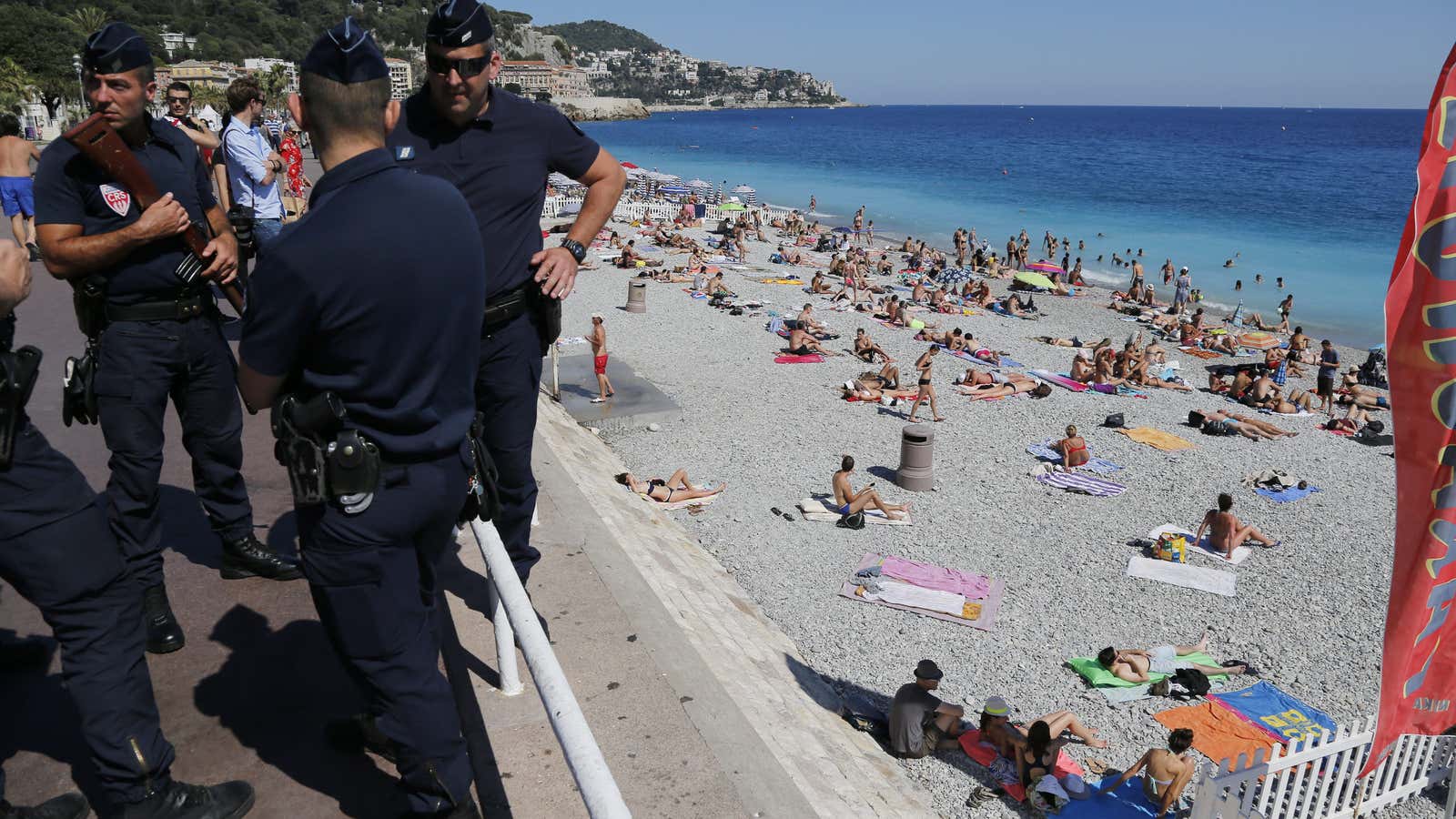Travelers have understandably become more concerned about terrorism this year, but those worries reached a fever pitch last month.
Searches for travel insurance that covers cancellations or interruptions due to terrorism surged 234% in June from the same month in 2015, travel insurance comparison site Squaremouth told Quartz. The site tracked which filters travelers used to select plans. (The figures don’t represent the number of plans sold.)
It is a reasonable query given the Bastille Day truck attack in Nice that left at least 84 people dead and suicide attacks at Istanbul’s Ataturk Airport that killed at least 44 people in June. That comes after earlier terror attacks in Brussels Airport in March and in Paris last year.
In the first six months of 2016, searches using the terrorism-coverage filter doubled from the year-earlier period, Squaremouth said.
Travelers should read policies’ fine print and benefits vary by country. Some providers exclude terrorism coverage. A Thomas Cook policy (pdf), for example, excludes terrorism as a covered reason for a claim, except for medical emergencies. (The UK-based firm also excludes coverage for anxiety, stress, and, appropriately for many Brits abroad, “climbing on top of or jumping from a vehicle.”)
In the US, coverage for terrorist attacks is standard in many travel insurance policies, according to Squaremouth. For example, all three tiers of travel insurance offered by AIG’s Travel Guard—a major provider of travel insurance in the US—for a $2,000 trip to France in early August includes such protection.
The starting rate is $86, which covers 100% of the cost of the trip should it need to be cancelled or interrupted because of a terrorist event. Two higher-priced plans both cover 150% of costs caused by interrupting a trip—including change fees and so on.
There are restrictions. The attack must have occurred within a one-mile radius of the city on the insured passenger’s itinerary and with 30 days of the scheduled departure. Also, travelers fearing terrorism under most standard policies are not covered simply because they have suddenly become to afraid to go.
Possibly for this reason, many wary travelers have been willing to shell out more for travel insurance that allows them to cancel for any reason, with Allianz experiencing a 20% increase in US sales of “cancel anytime” travel insurance policies through May this year.
The increased traveler worry is a windfall for providers—though often, when attacks have occurred, airlines have chosen to waive the fees themselves.
